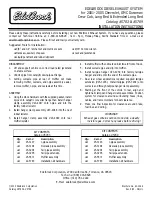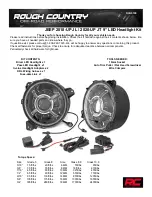
for example, your driving behaviour, your location,
your route or your use patterns.
Legal requirements regarding the disclosure of
data
If legally required to do so, manufacturers are, in
individual cases, legally obliged to provide govern-
mental entities, upon request and to the extent
required, data stored by the manufacturer. For
example, this may be the case during the investi-
gation of a criminal offence.
Governmental entities are themselves, in individ-
ual cases and within the applicable legal frame-
work, authorised to read out data from the vehi-
cle. In the case of an accident, information that
can help with an investigation can, therefore, be
taken from the airbag control unit, for example.
Operational data in the vehicle
This is data regarding the operation of the vehicle,
which have been processed by control units.
This includes the following data, for example:
R
vehicle status information such as the speed,
longitudinal acceleration, lateral acceleration,
number of wheel revolutions or the fastened
seat belts display
R
ambient conditions, such as temperature, rain
sensor or distance sensor
Generally, the use of these data is temporary;
they will not be stored beyond the period of oper-
ation and will only be processed within the vehicle
itself. Control units often contain data memories
for vehicle keys, for example. Their use permits
the temporary or permanent documentation of
technical information about the vehicle's operat-
ing state, component loads, maintenance require-
ments and technical events or faults.
Depending on the vehicle equipment, the follow-
ing data are stored:
R
operating status of system components, such
as fill levels, tyre pressure or battery status
R
malfunctions or faults in important system
components, such as lights or brakes
R
system reactions in special driving situations,
such as airbag deployment or the intervention
of stability control systems
R
information on events leading to vehicle dam-
age
R
charge level of the high-voltage battery, esti-
mated range
In certain cases, it may be required to store data
that would have otherwise been used only tempo-
rarily. This may be the case if the vehicle has
detected a malfunction, for example.
If you use services, such as repair services and
maintenance work, stored operational data as
well as the vehicle identification number can be
read out and used. They can be read out by
service network employees, such as workshops
and manufacturers or third parties, such as break-
down services. The same is true in the case of
warranty claims and quality assurance measures.
In general, the readout is performed via the legally
prescribed port for the diagnostics connection in
the vehicle. The operational data that are read out
document technical states of the vehicle or of
individual components and assist in the diagnosis
of malfunctions, compliance with warranty obliga-
tions and quality improvement. To that end, these
data, in particular information about component
loads, technical events, malfunctions and other
faults may be transmitted along with the vehicle
94
General notes
ohne
Summary of Contents for EQS 2021
Page 1: ...EQS Operator s Manual ohne...
Page 61: ...ohne...
Page 62: ...Left hand drive vehicles with central display 60 At a glance Cockpit central display ohne...
Page 64: ...Left hand drive vehicles with MBUX hyperscreen 62 At a glance Cockpit MBUX Hyperscreen ohne...
Page 66: ...Standard driver display 64 At a glance Indicator and warning lamps standard ohne...
Page 70: ...68 At a glance Overhead control panel ohne...
Page 72: ...70 At a glance Door operating unit and seat adjustment ohne...
Page 74: ...72 At a glance Control settings in the rear passenger compartment ohne...
Page 76: ...74 At a glance Emergencies and breakdowns ohne...
Page 925: ...ohne...
Page 926: ...ohne...
















































